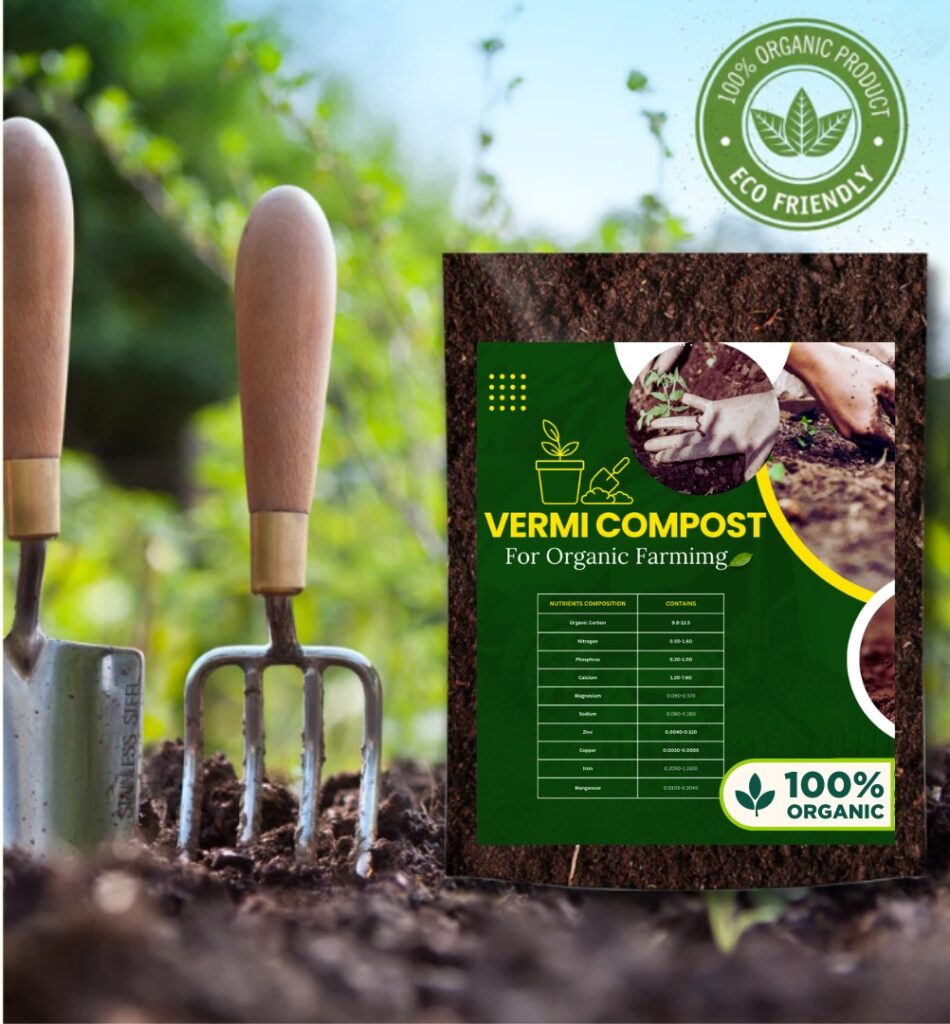The spotlight is now shining on a hidden gem – rock phosphate – in the ever-evolving realm of sustainable agriculture. Let us begin on a journey into the world of organic farming to uncover the secrets of this organic miracle and how it transforms the landscape of modern farming techniques.
What exactly is Rock Phosphate?

Rock phosphate is a naturally occurring sedimentary rock with a high phosphorus concentration that was formed from the fossilized remnants of marine creatures that accumulated over geological time. This one-of-a-kind mineral is a key component of sustainable agriculture, providing a rich amount of phosphorus required for plant growth and development.
⦁ What distinguishes rock phosphate is its slow nutrient release mechanism. In contrast to synthetic fertilizers, which provide an immediate infusion of nutrients, rock phosphate mineralizes slowly in the soil. Over time, soil microbes degrade its organic phosphorus molecules, delivering a consistent and sustained supply of this essential nutrient to plants throughout the growth season.
⦁ Aside from phosphorus, rock phosphate contains trace elements and minerals, which contribute to overall soil fertility. Slow decomposition not only feeds plants but also improves soil structure and promotes microbial activity.
⦁ In essence, using rock phosphate coincides with sustainable farming ideals by encouraging a natural, environmentally benign approach to soil enrichment. This not only promotes long-term soil health, but it also reduces the environmental impact of faster nutrient-release fertilizers. Rock phosphate emerges as a significant ally in developing healthy crops while boosting overall agricultural ecosystem resilience.
The Benefits of Rock Phosphate in Organic Farming:

⦁ Fertility Booster:
Acting as a powerhouse for soil fertility, rock phosphate infuses the earth with essential nutrients, fostering an environment conducive to plant health.
⦁ Slow Release of Nutrients:
One of rock phosphate’s unique attributes lies in its ability to release nutrients gradually. This ensures a sustained supply of phosphorous to plants, promoting long-term growth and resilience.
⦁ Eco-Friendly Marvel:
Embracing rock phosphate in organic farming isn’t just about yielding healthier crops; it’s a commitment to environmental stewardship. Unlike synthetic fertilizers, rock phosphate minimizes ecological impact, aligning perfectly with the principles of sustainable agriculture.
⦁ Microbial Activity Boost:
Rock phosphate fosters the growth of beneficial soil microorganisms. These microbes play a crucial role in nutrient cycling and contribute to improved soil structure.
⦁ Enhanced Root Development:
The phosphorous released from rock phosphate promotes robust root development. This is particularly beneficial for plants during their early growth stages, enhancing their ability to access nutrients and water.
⦁ Disease Resistance:
Organic farming with rock phosphate can contribute to increased disease resistance in plants. Phosphorous is known to fortify plants, making them more resilient to certain diseases.
⦁ Reduced Runoff Pollution:
Unlike some synthetic fertilizers, rock phosphate releases nutrients slowly, reducing the risk of nutrient runoff. This helps in preventing water pollution and promotes environmentally responsible farming practices.
⦁ pH Balancing:
Rock phosphate has a neutral to slightly alkaline pH, contributing to soil pH balance. This is especially advantageous in acidic soils, as it helps neutralize acidity and creates a more suitable environment for plant growth.
⦁ Long-Term Soil Improvement:
Continuous use of rock phosphate contributes to long-term soil improvement. It aids in maintaining soil fertility over several growing seasons, reducing the need for frequent soil amendments.
⦁ Better Nutrient Uptake:
Phosphorous from rock phosphate enhances the plant’s ability to take up other essential nutrients, promoting a balanced and nutrient-rich environment for optimal growth.
⦁ Environmental Sustainability:
Organic farming practices with rock phosphate align with principles of environmental sustainability. By avoiding the use of synthetic chemicals, it supports biodiversity and ecosystem health.
⦁ Economic Benefits:
While initial costs might be a consideration, the long-term benefits of using rock phosphate include reduced dependency on external inputs, potentially leading to cost savings for farmers.
⦁ Soil Erosion Prevention:
The improvement in soil structure resulting from rock phosphate application helps in preventing soil erosion. This is vital for maintaining the integrity of agricultural lands.
Techniques for Application:

It is simple to incorporate rock phosphate into your farming techniques. The adaptability of this organic fertilizer enables for easy integration into many farming systems, whether you wish to mix it straight into the soil during preparation or integrate it into your compost.
Challenges and thoughts:
While rock phosphate has various advantages, it is critical to recognize potential drawbacks, particularly those connected to availability. Farmers considering this organic route should evaluate local sourcing choices as well as the best circumstances for its success.
Organic Farming Success Stories:
There are numerous stories of farmers who have observed the transformational effect of rock phosphate. These success tales, ranging from enhanced yields to improved soil structure, attest to the usefulness of this organic solution in a variety of farming circumstances.
Conclusion:
As the final curtain falls, see your fields not as plots but as vast stages staging a verdant spectacle. The star of this organic opera, rock phosphate, conducts a symphony of growth, constructing a story in which each harvest becomes a standing ovation. Your farm, which has been transformed into a canvas painted with vivid hues of sustainability, invites you to join in a dance with nature. Join the encore, let the soil vibrate with life, and see your crops perform a botanical ballet. The stage has been properly prepared, and the actors, nurtured by the transformational magic of rock phosphate, are ready. As the first seed sprouts, prepare for a symphony of abundance that will echo harvest after harvest. A standing ovation for the harmonious partnership between earth and farmer, where each plant pirouettes in an agricultural masterpiece, showcasing the enduring magic of organic cultivation.



